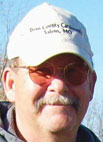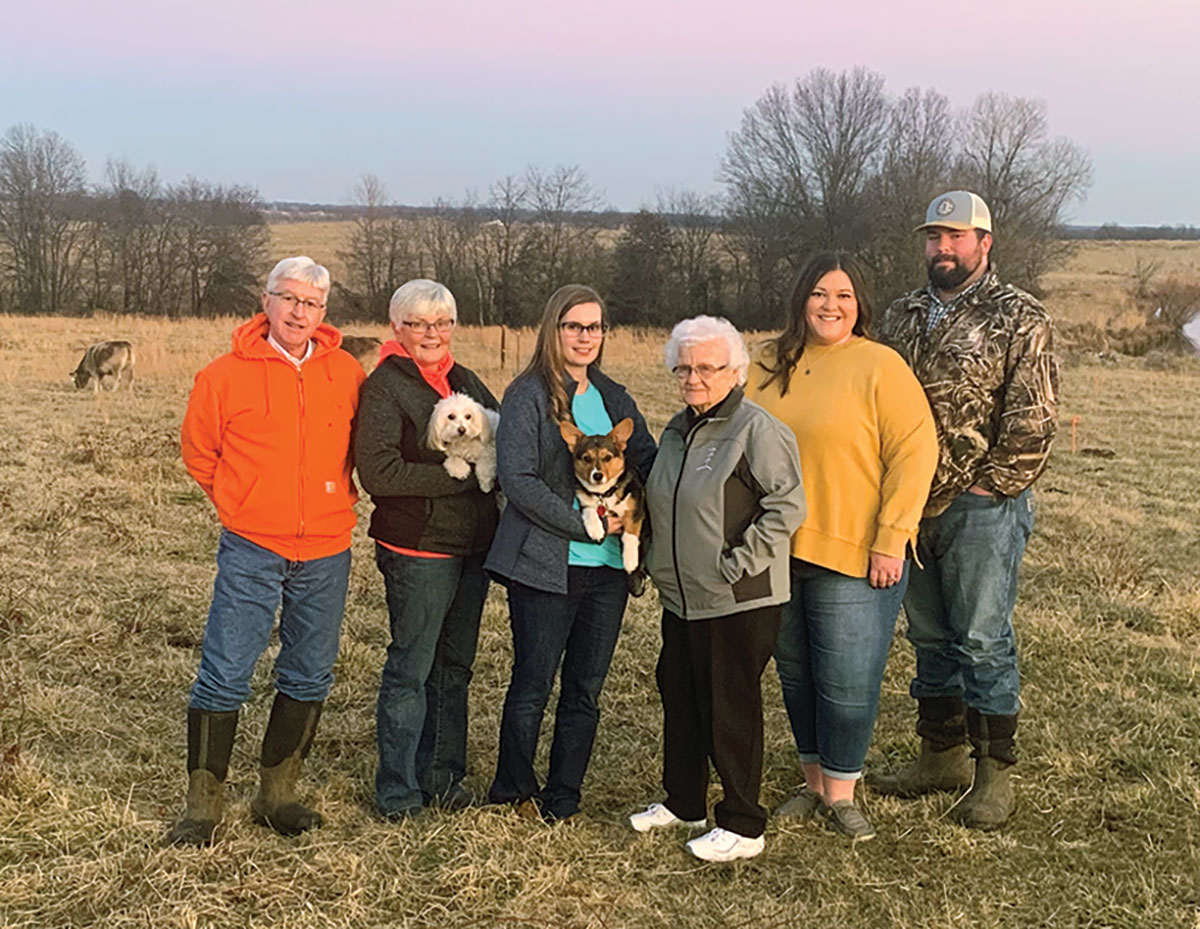
Denny and Mary Beth Pogue live on their family farm that is equidistant from Rolla, Salem, and St. James, Mo. Their home is Mary Beth’s grandparents’ house that was originally built in 1918. “I work in Rolla, Denny works in Salem and we have a St. James address and phone,” Mary Beth laughed when explaining their situation. Their son, Orin, a Drury University student, and daughter Adrian, a senior at Rolla, are the seventh generation to live on their land.
University of Missouri agriculture graduates, Denny is the senior vice president of The Bank of Salem and Mary Beth is a teacher with Parents As Teachers, yet their passion for the land and the work they do there rings clear in every word.
“Farming goes back several generations on both sides,” Denny explained, “and what we’re doing right now is looking for ways to keep the old farm going so that the kids can run it without so much overhead. That includes ways to cut the use of fertilizer and hay. We’re involved in an intensive grazing system in which we hope to eliminate the use of hay and has already significantly cut our use of fertilizer. Of course, we’re never going to eliminate the use of fertilizer altogether, but if we cut how much we have to use, that makes a real difference.”
The Pogues’ lower fields are full of lush green grass, as they rotate their mixed breed herd from one paddock to another. “We have 65-70 cows right now, on a rotating grazing system of 210 acres. We have a total of 400 acres, but we’re still working on re-doing the old fences and cleaning up another 40 acres for strip grazing. We operate a fall calving operation.” Those fences were put in during the first half of the last century by Mary Beth’s grandparents and great-grandparents. “We’ve got two miles of fences finished,” Denny added, “and two miles yet to be done.”
“In keeping 65 cows on a single acre, we get them to put all that manure and urine right back on that same acre, and then move them nightly if necessary. We no longer have any hay equipment and we don’t have to put out the phosphate and potash, we once did, so it all helps to cut costs.”
In cooperation with the University of Missouri Extension Office of Dent County and the Soil and Water District office, the Pogues have hosted the local grazing school on their farm as well as the State Beef Tour, which is producer-based. “A lot gets covered in the grazing school, like erosion prevention and water management. It all works together,” Denny continued.
His next move is to add goats to help control the brush. “We’ve looked into sheep to help cut down the weeds and goats for the brush.”
At the moment, they also have a llama. “They are great for keeping the coyotes away,” Mary Beth explained. “They don’t like canines of any kind and are always on the lookout. When you bring in calves or cows, the llama is the last one in, always watching. It’s really pretty neat.”
“We heat with wood, as does Mary Beth’s mother,” Denny said, pointing to the house, just down the drive from their own home. The corner post of what had once been her great grandparents’ house in also located nearby. “We’re trying to reduce our carbon emissions and use as little petroleum as possible. These Ozarks hills are not known for making lots of money so we have to find all kinds of ways to make it work.”
Mary Beth smiled, acknowledging that this was where she had grown up, gone to school, and now raised their children. “You know, I can’t imagine living anywhere else.”







